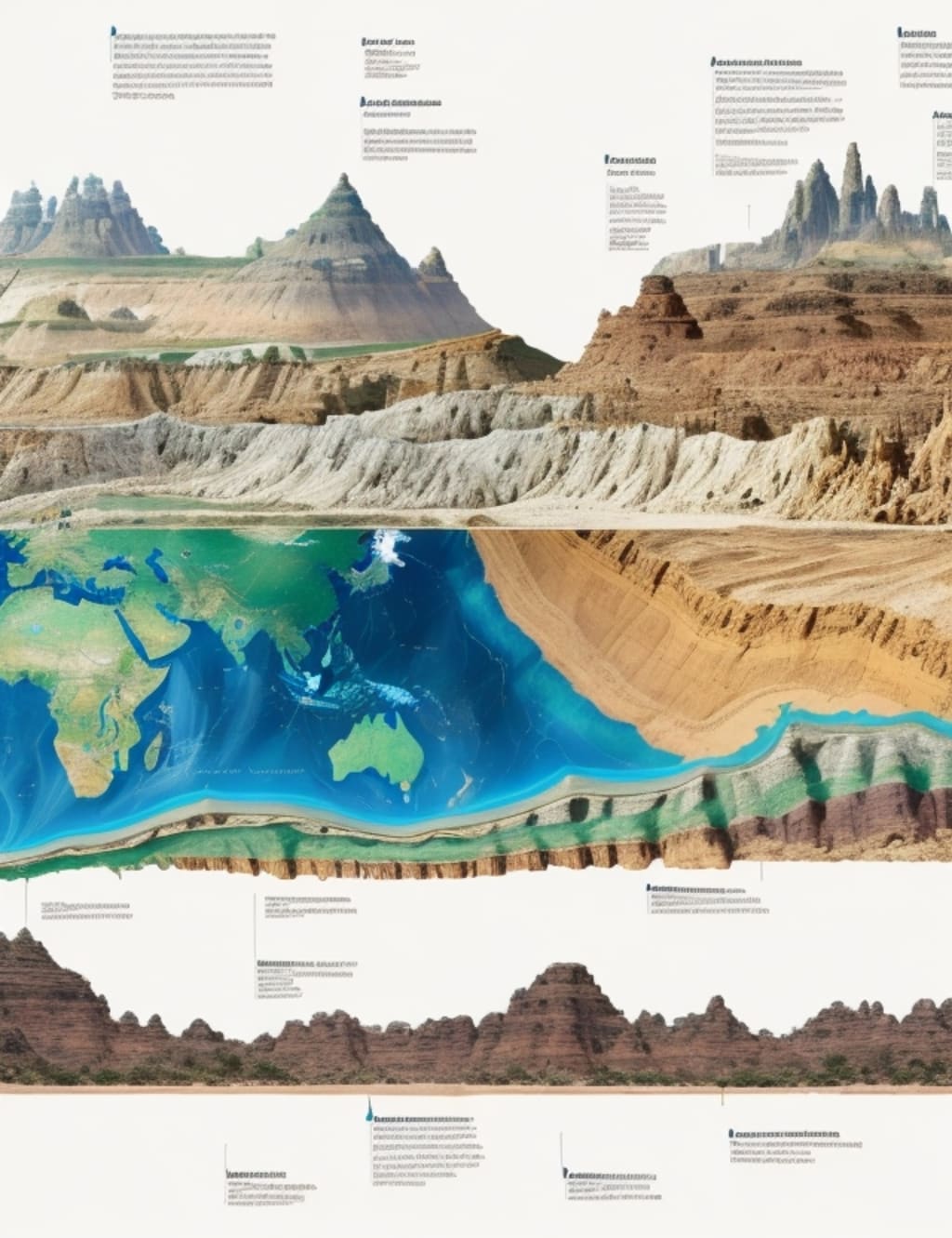The Geohistory Revolution: Unveiling Earth's Secrets
Unraveling Earth's Enigmatic Past: A Journey into Geological Time

Title: The Geohistory Revolution: Unveiling Earth's Secrets
Introduction
From the 1600s to the 1800s, while physics and chemistry underwent revolutions that made them quantitative, the study of Earth, encompassing geology, paleontology, oceanography, and more, remained in the realm of natural history and observation-based knowledge. However, this period also witnessed a remarkable transformation in the earth sciences, driven by the pursuit of understanding the planet's history, fossils, and age. This captivating journey into the past explores the emergence of geological time, debates between catastrophism and uniformitarianism, and the significant contributions of trailblazers like Charles Lyell, Mary Anning, and William Buckland.
Mining and Indigenous Knowledge: Foundations of Geology
The 1600s saw mining playing a crucial role in understanding the Earth. Indigenous populations near the Great Lakes mined copper for over six thousand years. Similarly, during colonization, European colonial empires exploited precious metals in Central and South America with the aid of indigenous geological knowledge and labor.
Geological Time and the Age of the Earth
Quantifying the age of the Earth proved to be a challenging task until the discovery of radioactivity and radiometric dating in the early 20th century. Prior to this, historians struggled to establish a reliable chronology, with estimations ranging from six thousand to ten million years old. The age of the Earth became closely tied to the age of the human species, creating a detailed linear narrative based on historical texts, records of eclipses, and comets.
Transformist Natural Historians: Proto-Evolutionary Theories
In the 17th and 18th centuries, French thinkers delved into fossil studies and speculated about organic development. The Comte de Buffon proposed the idea of the Earth's progressive cooling, suggesting epochs paralleling the days of creation from the book of Genesis. These ideas laid the groundwork for later theories of organic development, including those proposed by Charles Darwin.
Catastrophism and the Progressive Fossil Record
Georges Cuvier, a notable figure in the late 18th century, argued for catastrophism, suggesting that global catastrophes separated each epoch in Earth's history. Extinction events marked the end of one epoch and the beginning of another, leading to a progressive fossil record. His work, along with others like William Whiston, paved the way for a deeper understanding of Earth's history.
The Emergence of Deep Time and Uniformitarianism
The 19th century brought forth the notion of "deep time," recognizing that Earth had existed for an unimaginably long period before humans appeared. This concept allowed geohistorians to reconstruct Earth's past using evidence from fossils, rocks, and volcanic activity. The debate between catastrophism and uniformitarianism persisted, with Charles Lyell championing the latter, advocating for slow, gradual geological change and steady extinction rates balanced by the creation of new species.
Innovations and Industrialization
Advancements in geological mapping and the use of fossils to classify rock formations sparked a geological exploration wave across the globe. Figures like William Smith and John Farey utilized fossils to improve geological maps, contributing to the understanding of Earth's history. The industrial revolution's demand for coal and the pursuit of mineral resources further fueled the interest in geology and its practical applications.
Contributions of Visionary Geologists and Fossil Collectors
Key figures like Charles Lyell, Mary Anning, and William Buckland made significant contributions to the field of geology. Lyell's emphasis on gradual change and deep time inspired many young scientists, including Charles Darwin. Anning's remarkable fossil discoveries and Buckland's exploration of caverns and mines played essential roles in shaping the understanding of Earth's prehistoric life.
Conclusion
The period from the 1600s to the 1800s witnessed a remarkable transformation in the earth sciences, driven by curiosity, exploration, and a thirst for understanding Earth's history. Geologists embraced the concept of geological time and deep time, allowing them to unravel the mysteries of the planet's past. The debates between catastrophism and uniformitarianism laid the foundation for our understanding of Earth's history and the study of fossils provided crucial evidence of prehistoric life. The works of visionary geologists and fossil collectors brought to light the fascinating narrative of Earth's evolution, paving the way for further scientific advancements in the field of geology.
About the Creator
Enjoyed the story? Support the Creator.
Subscribe for free to receive all their stories in your feed. You could also pledge your support or give them a one-off tip, letting them know you appreciate their work.





Comments
There are no comments for this story
Be the first to respond and start the conversation.